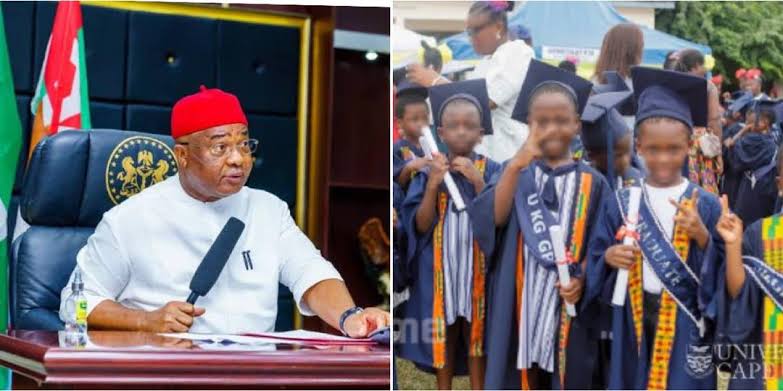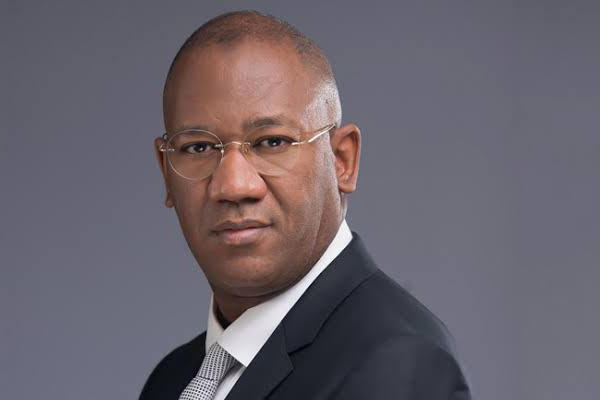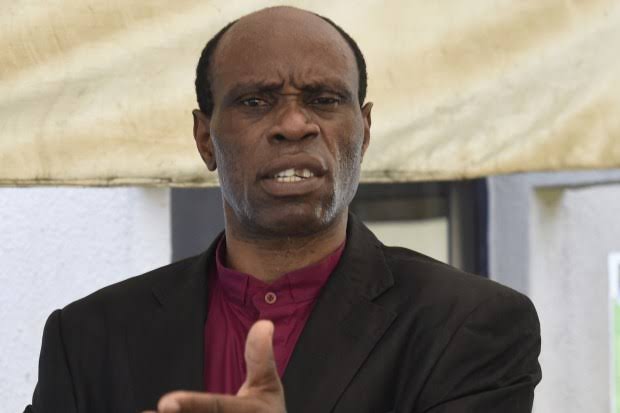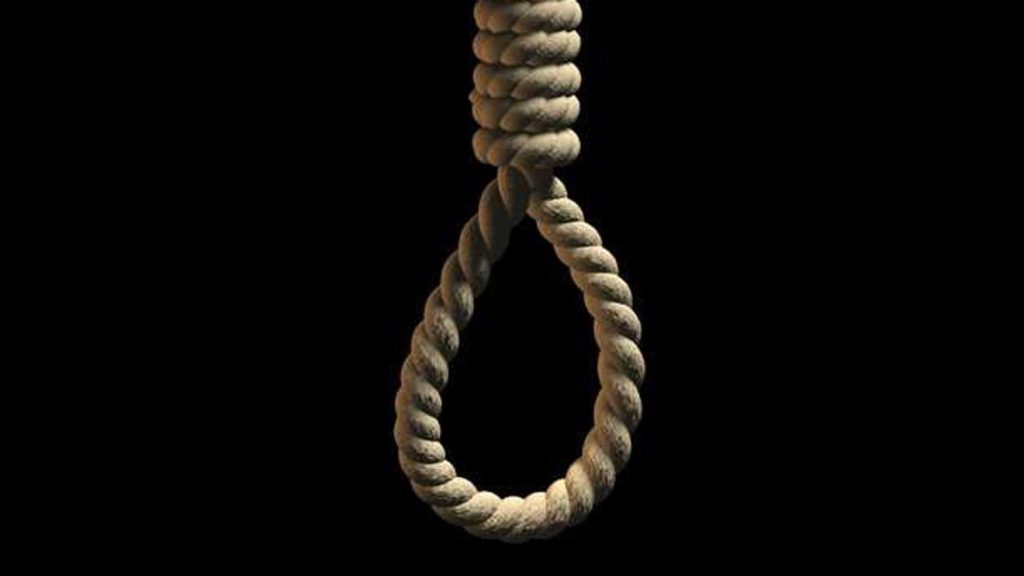Education
Anambra govt bans social gatherings on school premises

The Anambra State Government has officially imposed a ban on all social events, including weddings, shows, and entertainment, from taking place on public school premises.
The announcement was made by the state’s Commissioner for Education, Prof. Ngozi Chuma-Udeh.
It was communicated through a statement signed by the Permanent Secretary, Dr. Ifeoma Agbaizu, in Awka on Saturday.
According to Chuma-Udeh, the decision aims to protect school premises and infrastructure from damage caused by non-academic activities.
She emphasized that school facilities should not be used for commercial purposes.
“This is a warning to all principals and head teachers to desist from using school premises as commercial ventures.
“Henceforth, any principal or primary school head teacher who indulges in such acts will be severely dealt with”, she stated.
The commissioner has directed the Chairmen of the Post Primary Schools Services Commission (PPSSC) and the State Universal Basic Education Board (ASUBEB).
They are to ensure that the information is disseminated to all principals and head teachers across the state.
School heads are expected to adhere strictly to this new policy.
Historical use of school premises in Anambra
School premises in Anambra State have historically served dual purposes, both as educational facilities and as venues for social and community events.
Over the decades, these spaces have been utilized for weddings, religious gatherings, and various community activities.
This reflects a longstanding tradition of schools being central to community life.
This practice was particularly prevalent in the post-colonial era when public spaces were limited, and schools were among the few large venues available for such events.
However, this usage has evolved, and concerns have grown over the impact of these activities on school infrastructure.
In recent years, the practice of using school premises for non-academic purposes has raised issues, such as damage to facilities, security concerns, and disruptions to the educational environment.
Reasons for the ban
The Anambra State government recently decided to ban social events on school premises due to several critical concerns.
The primary justification is the protection of school infrastructure.
Events such as weddings and large gatherings often lead to physical damage to buildings and fields, which are costly to repair.
Moreover, the presence of non-academic activities can disrupt the learning environment, posing challenges for both students and educators.
There have also been concerns about security, with unauthorized access to school grounds during such events raising safety issues.
Examples of damage
Specific cases have illustrated the extent of damage caused by social events on school premises.
For example, some events have left school fields and classrooms in disrepair, requiring extensive repairs.
In some areas, using school grounds for religious activities caused conflicts and restricted access for educational purposes.
The conflict over school property use in Fegge, Onitsha, highlights the complexities of managing public school premises.
It underscores the challenges of using public school premises for non-academic activities.
In this case, the issue involved a public school that had been used by various religious and social groups for their activities.
Over time, this led to a situation where a particular religious organization, specifically a Roman Catholic Church, claimed ownership of the school premises.
The conflict escalated when the church locked up the school, restricting access to the facility.
This action sparked unrest as residents protested, arguing the school was public property and should remain accessible for all.
This example is significant because it shows how using school facilities for both education and community events can lead to conflicts.
Such dual use can potentially compromise the primary function of schools as educational institutions.
The physical and social damage from conflicts led the Anambra State government to ban social gatherings on school premises.
This decision aims to protect these spaces and ensure they remain focused on their educational purpose.
Education
Odumegwu Ojukwu Varsity VC appointment: Where Is Justice, Where Is Merit in Soludo’s “Light of the Nation”?

By Ekene Okoye
The Anambra State government prides itself on being the “Light of the Nation”, a shining symbol of justice, fairness, and merit.
Governor Charles Chukwuma Soludo, the state’s chief advocate of reform, often stresses transparency and integrity as guiding principles of his administration.
Yet, the recent appointment of Professor Kate Azuka Omenugha as the substantive Vice Chancellor of Chukwuemeka Odumegwu Ojukwu University (COOU) casts a long and troubling shadow over that claim.
At the centre of the matter is a simple, searing question: How does a government that swears by justice and merit justify bypassing the top three constitutionally recommended candidates, only to hand the role to someone who came a distant fifth?
A Flawed Beginning
The story begins on 18 December 2024 with a botched Senate election under the supervision of then–Acting Vice Chancellor, Prof. Omenugha. That exercise, meant to produce three Senate representatives for the Joint Council/Senate Selection Committee, collapsed amid allegations of irregularities. It took the intervention of Governor Soludo himself, through the Council’s Chairman, for the exercise to be annulled.
The process was restarted on 9 July 2025 under close scrutiny by the Honourable Commissioner for Education, -Ngozi Chuma-Udeh. This time, observers agreed, credibility was restored.
For the first time in COOU’s 25-year history, the university was on track to conduct a transparent, rigorous selection process worthy of its mandate.
That optimism peaked on 30–31 July, when seven respected members of the Selection Committee interviewed shortlisted candidates. Their scores were clear.
Prof. Chike Osegbue (83%)
Prof. Leonard Onuba (81%)
Prof. Chukwudi Onyeaghana Okani (78%)
Prof. Omenugha? She came fifth with 73%, trailing behind.
What the Law Says
The COOU Law of 2014 is unambiguous. Ordinance II(4)(d) stipulates that the Visitor (the Governor) must appoint the Vice Chancellor from a list of top three candidates recommended by Council, arranged in order of merit.
The Council is required not only to recommend these top three but to justify the ranking, with the candidate in first place presented as the institution’s preferred choice.
On August 1, 2025, Pro-Chancellor Prof. Chidi Odinkalu, Chairman of Council, formally transmitted the report of this transparent process to Gov Soludo.
The Governor himself commended the Council’s rigorous and credible work, describing the process as “transparent and credible.”
Yet, in a stunning twist, the letter signed by Secretary to the State Government, Prof. Solo Chukwulobelu, announced that the Visitor had appointed Prof. Omenugha, ranked fifth, citing benchmarks entirely alien to the COOU Law.
Where Is Justice? Where Is Merit?
The question must be asked again: Where is justice? Where is merit? And, where is the enabling Law?
The three candidates who labored through a transparent process were not only qualified but ranked higher by a legally constituted Selection Committee.
To disregard them and elevate someone who was not statutorily before the Visitor is not just questionable, it is unlawful.
For a government that proclaims itself as the custodian of light and meritocracy, this action casts doubt on its integrity.
What example does this set for the thousands of COOU students who are taught that hard work, fairness, and merit lead to reward? What message is being sent to staff who participated in good faith in the process, only to see their voices sidelined?
A Dangerous Precedent
This is no trivial matter. Universities are sacred spaces of learning, where meritocracy is the bedrock of advancement.
By appointing someone who came fifth, the Anambra government has set a precedent that undermines the institution’s credibility and damages its moral authority.
Already, the appointment has sparked outrage within and even outside the university community. Staff and students alike describe a sense of betrayal, mourning the loss of what had seemed like a golden opportunity to restore the university’s battered image.
The COOU Collective has rejected the appointment, calling it a “flagrant abuse” of the law and urging the Visitor to reverse course.
The 2014 Visitation Panel’s Report had warned against such manipulations, insisting that “all organs involved in appointing the Vice Chancellor must duly and fully comply with the provisions of the University Statute to confer legitimacy on the chosen candidate.” That advice has now been trampled upon.
Political Interference and the Erosion of Trust
Critics argue that this imposition reeks of political interference, reducing the university to a pawn in partisan calculations. It drags COOU back a decade in its struggle to build a reputation as a credible center of learning.
The tragedy is that this violation came precisely at the moment when COOU had, for the first time in its 25 years, conducted a process that was transparent, credible, and fair.
For once, merit had spoken. But rather than listen, the state government chose to silence it.
When political power disregards institutional autonomy, the very fabric of education is compromised.
How can COOU lecturers demand excellence from students when the government itself refuses to honor the principle of merit?
Soludo’s Contradictions
Gov Soludo is no ordinary politician. A former Central Bank Governor and respected academic who has often positioned himself as a reformist leader committed to transparency and justice.
Yet, in this case, his government has taken a path that contradicts those very ideals.
How can a government that brands itself as the “Light of the Nation” operate in darkness when it comes to its own university? How can a leader who rose through academic merit sanction an appointment that spits on the very idea of meritocracy?
The Human Cost
This is not just a bureaucratic squabble. Real people are affected. The morale of the staff who participated in the process has been shattered.
Students now wonder whether their degrees carry the weight of an institution that respects the law.
Alumni question whether their alma mater can continue to command national and international respect.
By appointing someone who lacks legitimacy in the eyes of the law, the government has weakened the university’s ability to attract serious scholars and global partnerships.
In the long run, it is the people of Anambra, and Nigeria at large, who will pay the price.
A Call for Reversal
The COOU Law is clear. The process was transparent. The merit list was produced. Yet, merit was discarded.
The university community, staff, students, and alumni must resist this imposition, not out of malice toward Prof. Omenugha but out of love for the university and the principles that sustain higher education.
To accept this appointment is to normalize illegality, to accept that hard work and integrity no longer matter in Anambra’s premier state university.
The state government must urgently reverse this decision and appoint the top-ranked candidate, in line with the law.
Anything less is a betrayal not only of COOU but of the ideals that Anambra claims to uphold.
Light or Darkness?
This episode forces a painful reckoning. Will Anambra remain the “Light of the Nation,” shining as an example of justice and merit? Or will it sink into the murky waters of political convenience, where rules are bent and institutions hijacked?
In the case of COOU, the path is clear: justice demands that the law be obeyed, and merit must prevail. Anything else is darkness masquerading as light.
The students of COOU deserve better. The staff deserve better. Anambra deserves better.
If the Soludo administration cannot uphold justice in the appointment of a Vice Chancellor, how can it be trusted to uphold justice anywhere else?
The future of education in Anambra hangs in the balance. The question remains: Gov Soludo, where is justice? Where is merit?
Education
U.S. Revokes 6,000 International Student Visas

The United States government has revoked more than 6,000 student visas, citing violations of U.S. law and security threats.
The State Department confirmed the decision in a statement to the BBC, stressing that officials will not tolerate crimes or actions that threaten national safety.
According to the report, most of the visa cancellations came from students who committed serious offenses. These included assault, burglary, and driving under the influence (DUI).
The government also linked a portion of the cases to what it described as “support for terrorism.”
The announcement marks another step in Washington’s tough immigration crackdown under the Trump administration.
Authorities have increasingly tightened the rules for international students, especially those from countries facing political conflicts.
While the department did not clearly define what it meant by “support for terrorism,” it pointed toward student protests over Palestine.
Officials claimed some of these demonstrations included antisemitic behavior, which triggered further scrutiny.
Out of the 6,000 visas revoked, the department said nearly 4,000 resulted from direct violations of U.S. laws.
Another 200 to 300 fell under terrorism-related violations outlined in Section 3B of the Immigration and Nationality Act.
This code broadly defines terrorism as any act that endangers human life or violates U.S. law.
Earlier this year, the administration temporarily suspended visa appointments for foreign students.
In June, when appointments resumed, authorities introduced stricter checks.
They required applicants to provide access to their social media accounts. Officials argued that public online activity would help them detect possible hostility toward American citizens, culture, or institutions.
Furthermore, the government directed officers to identify individuals who support foreign terrorist groups or promote unlawful antisemitic violence.
Washington said these steps aim to protect national security and prevent extremist influence within U.S. campuses.
The decision has sparked mixed reactions globally.
While supporters believe the move strengthens America’s defenses, critics argue it unfairly targets students based on activism and political expression.
Immigration experts also warn that such sweeping actions could discourage talented international students from choosing the U.S. for higher education.
The visa crackdown comes at a time when relations between Washington and many foreign governments remain tense.
Observers say the policy could affect thousands of families who invested heavily in education opportunities abroad.
As the U.S. enforces stricter controls, international students now face an uncertain future.
The message from Washington remains clear: breaking U.S. laws or aligning with movements deemed hostile will carry severe consequences.
Education
2025 UTME: JAMB Opens Probe Into 6,458 Candidates

The Joint Admissions and Matriculation Board (JAMB) has launched a major investigation into 6,458 candidates accused of using sophisticated technology to cheat in the 2025 Unified Tertiary Matriculation Examination (UTME).
JAMB Registrar, Prof. Ishaq Oloyede, on Monday, August 18, inaugurated a 23-member Special Committee on Examination Infraction to handle what he described as the “most complex wave of exam fraud” the board has ever faced.
According to Oloyede, exam malpractice has moved far beyond impersonation and answer sharing.
He revealed that investigators discovered advanced methods such as biometric manipulation, image blending, falsified albinism claims, and attempts to hack into Computer-Based Test (CBT) centres’ networks.
“This year, we came across strange cases that required us to expand our resources,” Oloyede said.
“Examination malpractice is something we must fight with every pinch of blood in our veins. If left unchecked, it will destroy our education system and tarnish Nigeria’s image globally.”
The registrar disclosed that 141 “normal” malpractice cases have already gone to JAMB’s disciplinary committee.
However, the newly inaugurated body will focus on “extraordinary infractions” involving advanced digital fraud and criminal collusion.
He outlined the committee’s duties:
- Investigate identity fraud cases such as image and finger blending.
- Review claims of albinism falsification and result tampering.
- Examine the technologies used to commit the fraud.
- Recommend stronger exam policies.
- Decide the fate of 6,458 candidates whose results remain under probe.
Oloyede gave the committee a three-week deadline, stressing that “justice delayed is justice denied.”
He explained that admissions will close in about four weeks, and innocent candidates should not miss out on opportunities because of prolonged investigations.
Committee chairman, Dr. Jake Epele, assured Nigerians that his team will treat the assignment as a national duty.
“Examination malpractice is not just a breach of rules. It is a direct assault on merit and the future of our youth,” Epele said. “Everyone on this committee has a sacred duty not a job.
We must defend the credibility of JAMB exams, restore public confidence, and prove that honesty remains the path to opportunity.”
The 23-member panel includes academics, security experts, and representatives from Microsoft Africa, the Department of State Services (DSS), the Nigeria Police Force, and the National Association of Nigerian Students (NANS).
For many Nigerian youths, JAMB’s UTME remains the single gateway to higher education.
Any compromise in the system undermines fairness, discourages hard work, and erodes trust in national institutions.
By aggressively tackling tech-enabled fraud, JAMB hopes to protect both the credibility of exams and the future of millions of students.
Education
Imo Govt Bans Pupils’ Graduation Parties

The Imo State Government has introduced sweeping reforms in its education sector, sparking reactions from parents and stakeholders.
Governor Hope Uzodimma’s administration announced the new policy through a memo signed on August 15, 2025, by the Commissioner for Education, Professor Bernard Ikegwuoha.
In the document titled “Policy on Education for Public and Private Primary and Secondary Schools in Imo State”, the government directed schools to scrap graduation ceremonies for kindergarten, nursery, and Junior Secondary School 3 (JSS3) students.
The new rule allows only pupils finishing Primary 6 and students completing Senior Secondary School 3 (SSS3) to hold graduation parties, in line with Nigeria’s 6-3-3-4 education system.
Professor Ikegwuoha explained that the decision aims to shift focus back to academics instead of expensive ceremonies.
He stressed that schools, parents, and guardians must place emphasis on educational milestones that truly mark the end of a learning cycle.
According to him, holding graduation events at every stage distracts from academic achievement and drains parents financially.
Beyond graduation parties, the Commissioner also tackled the growing issue of frequent textbook changes.
He condemned schools for introducing new textbooks every year, describing the trend as exploitative.
To ease the financial stress on families, the government directed that all approved textbooks must remain in use for at least four years.
This allows siblings to reuse the same materials and helps parents avoid unnecessary spending.
“Proprietors of private and faith-based schools must stick to the approved list of textbooks,” Ikegwuoha warned.
“Constantly changing books every academic session not only burdens parents but also disrupts the stability needed to improve learning outcomes.”
He further explained that adopting a four-year lifespan for textbooks would encourage uniformity across schools in Imo State.
According to him, consistency in learning materials creates a more efficient environment for both teachers and students.
He emphasized that the government wants to improve the quality of education without adding unnecessary costs to families already struggling with economic hardship.
Stakeholders have begun reacting to the policy.
Some parents welcomed the move, noting that graduation parties for very young children had become unnecessary social competitions.
Others applauded the textbook directive, saying it would help them save money and provide relief for households with multiple school-aged children.
The new policy takes immediate effect across both public and private schools.
The government has vowed to monitor strict compliance and sanction schools that attempt to bypass the rules.
By focusing on long-term academic achievement, the Uzodimma administration hopes to restore balance and affordability to education in Imo State.

(DDM) – The sixth cohort of DDM Academy is set to commence on September 15th, 2025, with applications already open for prospective students.

The program, widely regarded as one of the most affordable and practical digital training initiatives in Nigeria, offers young people the chance to acquire essential technology skills for today’s fast-changing world.
Diaspora Digital Media (DDM) gathered that the Academy, based in Awka, Anambra State, has consistently produced graduates who have gone on to secure jobs, internships, and freelance opportunities across multiple sectors.
The organizers noted that the Cohort 6 program will accept a limited number of students, both online and onsite, ensuring that training remains personalized and hands-on.
Officials said the Academy has become a reference point for digital transformation in the South-East and beyond, with young Nigerians from different states signing up for the training.
Available courses include Frontend Web Development, Backend Web Development, Cybersecurity, UI/UX and Product Design, Data Analytics, Artificial Intelligence, Machine Learning, Graphics Design, and Microsoft Office Suite.
Each course, according to the Academy, is designed to meet industry needs, providing students with the technical capacity to compete globally.
Instructors are drawn from experienced professionals who combine real-world expertise with practical teaching methods.
The Academy’s management explained that the digital economy is expanding rapidly, and those who fail to update their skills risk being left behind in an increasingly competitive job market.
They further stressed that the program is open to undergraduates, graduates, and professionals seeking to upgrade their skills, as well as secondary school leavers aspiring to pursue tech-driven careers.
Officials also announced a referral bonus system where existing students or interested individuals can earn ₦5,000 for each candidate they refer who successfully registers and pays for training.
The announcement added that the program is flexible, offering both virtual and physical learning environments, depending on the student’s preference.
Applications are ongoing, and interested candidates are directed to the official link at https://www.ddm.media/cohort-6 for registration.
The Academy emphasized that seats are limited and encouraged prospective students to apply immediately to avoid missing out.
Graduates of previous cohorts testified that the training helped them land remote work opportunities and prepare for global career challenges.
As the digital revolution accelerates, experts insist that Nigerian youths must embrace practical training in technology to remain relevant.
DDM Academy management maintained that the September 15th intake will build on the success of earlier programs and set new standards for tech education in the region.
With a countdown to the official start date already underway, the Academy is positioning itself as a critical platform for Nigeria’s next generation of innovators, problem solvers, and digital leaders.
🚨 Follow DDM WhatsApp channel Now!
Get breaking news, hot gist, and updates FIRST!
*📲 Click to join 👇* https://whatsapp.com/channel/0029Vajkwdc4dTnFHl19vW3g
*Apply at the link below and Start Your Tech Journey:*
👇🏽
https://www.ddm.media/cohort-6
-

 Featured4 days ago
Featured4 days agoYour Attacks on Peter Obi Are Petty, Stop It! Chekwas Rebukes Soludo
-

 News4 days ago
News4 days agoTension in Anambra community as senior police officer shoots kinsman dead
Colleagues, others try cover-up; victim's family fights back
-

 News7 days ago
News7 days agoAnambra South Bye-Election: APC Chief Rescues Deputy Gov Caught In Vote Buying From Angry Youths
By Chuks Collins, Awka
-

 News5 days ago
News5 days agoNigerian visa applicants must provide 5-yr social media history — US embassy
-

 Celebrity/Entertainment22 hours ago
Celebrity/Entertainment22 hours agoHow Nigerian TikToker Geh Geh Made ₦45 Million in One Night
-

 Analysis6 days ago
Analysis6 days agoSystemic Sabotage: How APC, INEC Colluded To Undermine Amamgbo’s Senatorial Bid
By Arthur Ezechukwu
-

 News3 days ago
News3 days agoTerrorist Organisation: APC, PDP Members in US, UK, France Risk Deportation
-

 Celebrity/Entertainment5 days ago
Celebrity/Entertainment5 days agoWhy single mothers can’t raise boys into proper men — Jim Iyke
-

 News7 days ago
News7 days agoBREAKING: Troops arrest Nigeria’s most wanted terror kingpin
-

 News2 days ago
News2 days agoVandal electrocuted while vandalizing Aba power infrastructure












